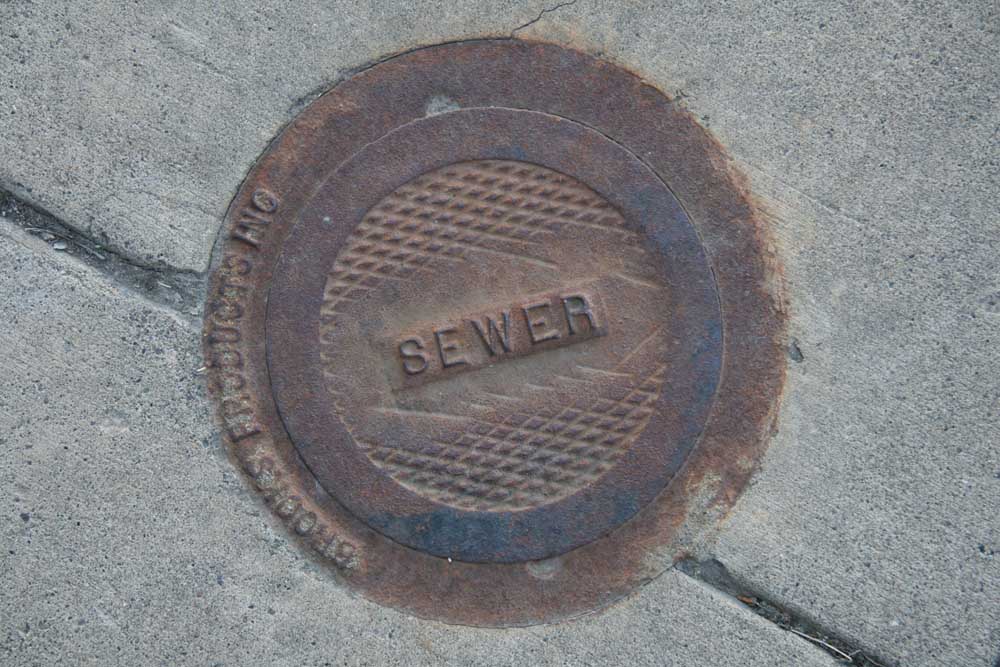Woman plans to sue Bend over sewer pipe
Published 12:00 am Tuesday, December 4, 2018

- A sewer access port in Bend. (Dean Guernsey/Bulletin photo)
A Bend woman claims repairs to a city sewer pipe near her home caused carbon monoxide poisoning, and now she’s planning to sue the city.
The Salem law firm Lafky & Lafky sent the city of Bend a notice last week that their clients, Susan and Roger Dosier, intend to sue and requesting that the city preserve all documents related to an ongoing project to repair a major sewer pipe with a liner inside it.
The Dosiers live off Deschutes Market Road east of Bend. According to the notice, the city’s plant interceptor line, a reinforced concrete pipe built in the early 1980s, runs along the back boundary of their land, and they granted the city a temporary construction easement to allow access during repairs.
All city sewage eventually ends up in the plant interceptor, which runs northeast from Pine Nursery Park along a canal road to Bend’s wastewater treatment facility. During the past several decades, sewer gases have deteriorated the pipe. If it went unfixed, the pipe eventually would fail and allow raw sewage to seep into the ground, creating a threat to public health and the environment.
Instead of excavating the pipeline, city staff opted to use a process called a cured-in-place pipe. Workers force a liner into the pipe through a manhole, then inflate the liner to fit the existing pipe and use heat or ultraviolet light to cure, or harden, the new liner. When it’s done, a new pipe exists within the existing pipe.
The Bend City Council in June approved a $5.5 million contract with Missouri-based Insituform, a company that’s specialized in cured-in-place pipes for more than 45 years. Construction began in September and is expected to wrap up by July 2019.
This method is faster and cheaper than digging up the existing line and building a new one. It also means the city doesn’t have to stop sewer access at any point.
According to the legal notice, Susan Dosier began noticing gases being discharged at the construction site near her home on Nov. 10. She drove over on the adjacent canal road and took several pictures while standing about 20 feet from the manhole. She also tried to talk to workers on-site, but they hid as she approached their vehicles, according to the notice.
After about five minutes at the site, Dosier returned to her car to drive home. During her drive, she experienced nausea, a burning sensation in her ears, nose and throat, ringing in her ears, a loss of hearing, headache, hypertensive blood pressure and confusion, according to the notice.
She sealed her clothes in a bag and went to the emergency room at St. Charles Bend, where she was diagnosed with carbon monoxide poisoning, according to the notice.
The Dosiers and their neighbors have been in contact with a Purdue University professor, Andrew Whelton, who led a research team studying emissions from steam-cured pipes in Indiana and California. Whelton and his team found that emissions commonly believed to be harmless steam contained a mix of chemicals as well.
Bend City Attorney Mary Winters said she received the notice and sent it to the city’s insurance provider, Citycounty Insurance Services, as she does with every tort claim. The claim will likely also be shared with the city’s engineering department and the contractor, and CIS will investigate it, she said.
The Dosiers’ attorney did not return a phone call by press time.
— Reporter: 541-633-2160; jshumway@bendbulletin.com








